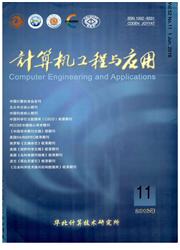

 中文摘要:
中文摘要:
目的探讨在校大学生网络学习行为的状况及其与人格特征的关系。方法运用自制的“大学生网络学习行为调查问卷”和卡特尔16PF对389名大学生进行调查。结果进行网络学习时,大学生对自己网络学习态度和网络学习效果的评价一般;在时间管理上,时间效能感最强,时间监控感最差;在查寻网络信息时,最倾向于运用快速表层式,最不倾向于运用深层潜入式。大学生人格特征与其网络学习行为具有密切的关系。结论大学生的人格特征可预测其网络学习行为。
 英文摘要:
英文摘要:
Objective To explore college students' e-learning behavior and its relationships with their personality characteristics. Methods A survey was conducted among 396 university students with Cattell 16PF and the self-designed E-learning Behavior Inventory for College Students. Results The university students' evaluation of their e-learning attitude and effects was mediocre. Their time efficiency was the strongest, but time monitoring was the worst in time management. The information seeking pattern which university students tended to use most frequently was fast surfing, while the least used pattern was deep diving. There was a close relationship between e-leaning behavior and personality characteristics of the students. Conclusion University students' personality characteristics can predict their e-learning behavior.
 同期刊论文项目
同期刊论文项目
 同项目期刊论文
同项目期刊论文
 期刊信息
期刊信息
